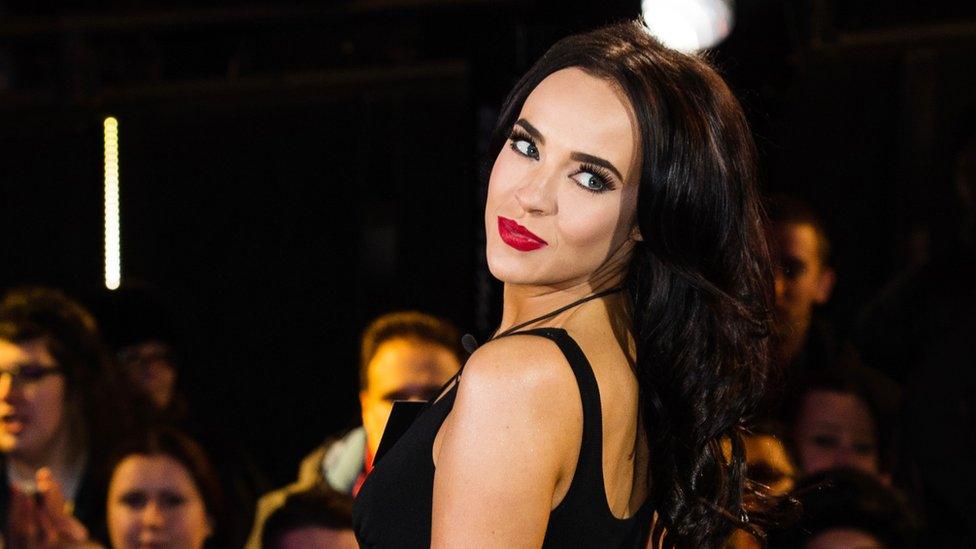Celebrities warned over social media ads
- Published

Former reality TV star Stephanie Davis was warned by the ASA that she must clearly label ads on social media
An investigation has begun into whether celebrities are making it clear when they are paid to endorse a product on social media.
The UK's competition watchdog has written to a number of influencers, including household names, to question how they operate.
These people, often with millions of social media followers, should make any commissioned posts immediately clear.
The regulator said it would name anyone found to be flouting the rules.
The Competition and Markets Authority (CMA) has not released the names of celebrities, thought to be in double figures, who have been contacted as yet, but a string of well-known people have been admonished by the UK's advertising watchdog in recent times.

Recent cases where the Advertising Standards Authority (ASA) has intervened include:
A photo of some vitamins from lifestyle company Convits along with a promotion code posted by former reality TV star Stephanie Davis: the ASA said it was not clear that it was an advert
A post by the make-up blogger Sheikhbeauty on Instagram promoting Flat Tummy Tea, external that did not make clear she was being paid by the drinks company
A tweet by the TV presenter AJ Odudu that featured a photo of an Alpro dessert, external with text describing it as one of her favourite snacks, but without any acknowledgement that she was being paid to promote it on social media
A video uploaded by Made In Chelsea TV star Millie Mackintosh advertising a Britvic drink, external that used #sp - referring to "sponsored post" - to identify its nature. The ASA said it did not think consumers would realise what the hashtag referred to.

The CMA said that celebrities could sway the shopping habits of millions of people by telling followers on channels such as Twitter, YouTube and Instagram where they have been on holiday, what they wear, what products they use or which books they read.
Consumer protection regulations state that anyone should make it clear in editorial content at first sight if they have been paid or rewarded in some way.
The risk is that consumers might be more likely to place their trust in a product if they think it has had the personal recommendation of someone they admire, without realising the post is part of a commercial agreement.
"It is really important they are clearly told whether a celebrity is promoting a product because they have bought it themselves, or because they have been paid or thanked in some way by the brand," said George Lusty, senior director at the CMA.
The CMA has asked the public to share their experiences as part of the investigation, external.
The investigation, which has no set deadline, could lead to naming and shaming of anyone breaking the rules, and potentially prosecutions. Courts can issue unlimited fines or even imprisonment in extreme cases.
Dozens of celebrities were warned about endorsing products on social media when the CMA took action against an intermediary in 2016.
- Published20 March 2018

- Published1 May 2018

- Published11 August 2016
